Teething and Vomiting in Babies – Is It Normal?
Teething is a natural phase every baby goes through, and the symptoms of teething vary from infant to infant. While some babies sail through this period smoothly, some experience difficulty. For instance, fever and vomiting along with teething. Vomiting and teething in infants is a debatable topic. It is still controversial whether vomiting due to teething, i.e., the emergence of teeth in a baby, is possible or not. Most doctors advocate that vomiting, diarrhoea and rash are not caused by teething. When such severe symptoms occur, a certified paediatrician doctor must be consulted. No other drug, homoeopathic medicine, or herb is recommended when the doctors need to evaluate why the baby is suffering from vomiting (1).
What Is Teething, and When Does it Begin?
Between 6 to 24 months of a baby’s birth, teething generally occurs (2). When the baby’s teeth emerge or break through the gums, they show various symptoms to express their discomfort by being irritable or putting objects in their mouth. If the baby happens to be an early developer, the first tooth may sprout as early as 3 months. The day the first tooth appears is a milestone to be celebrated, and the date can be noted in the baby diary. By the time your baby is 3 years, a full baby set of 20 teeth can be seen. The first few teeth to cut through the gums are called ‘pegs’, which are followed by the top centre teeth. Most parents remember the teething period of their baby as they experience a lot of discomfort.
Can Teething Cause Vomiting in Infants?
Let’s address the very popular question, “Does teething cause vomiting?” Well, teething, an exciting milestone in a child’s life, is often not a very pleasant experience for some. Every baby experiences different symptoms during the process of teething. Experts do believe that teething can cause localised pain or soreness, but it is less likely to cause rashes or vomiting. The paediatrician should try to find out if any other reason is responsible for the vomiting. The passive immunity that a child acquires from the mother gets affected because of exposure to a range of food to bite and chew after acquiring the first set of teeth. You might wonder, “Can teething cause vomiting at night?” It is very rare that babies vomit during their sleep unless they have a bacterial infection or indigestion. It is tough to predict the onset of teething in babies accurately.
How to Manage Teething Symptoms
- Teething toddlers do not ever show any normal teething symptoms. Some babies drool, some become irritable and some have trouble sleeping during their teething period.
- An indicator when your baby is teething is slight visibility of a white mass below the gum and mothers can anticipate the emergence of teeth.
- When babies start teething, you need to keep your drooling baby dry by making the baby put on a bib. The baby is sure to feel uncomfortable in wet or damp clothes (3).
- When babies start behaving cranky, mothers understand that they are uncomfortable, and sullenness is another indicator of a baby’s teething duration.
- If your baby has inflamed and red gums, gently massaging the affected area with your forefingers can provide some relief (4).
- Another symptom that confirms a baby’s teething phase is crying very frequently when the discomfort of teething becomes unbearable. New moms should try to find out the other symptoms and try to pacify the baby.
- Babies show different symptoms during teething. When they start chewing anything that comes their way, it is a sure sign of teething, and they should be provided with clean, hard toys or eatables that can soothe their gums (1).
- Babies can be given relief for their unbearable pain by painkillers, but parents must avoid doing so and try giving a cold compress, a teething ring or a chilled spoon to reduce the discomfort.
When to Consult the Doctor?
Teething is a common phenomenon every infant goes through, so it does not warrant a visit every time they feel sensitivity. Teething can be dealt with at home. However, if your little munchkin develop high fever, frequent vomiting, or diarrhoea, and unusual discomfort, then you should consult your doctor.
The claim that teething can cause vomiting is incorrect. Vomiting is not associated with teething. Hence, the child should be diagnosed by a doctor if you see such symptoms in your child. Your doctor will assess your child’s health condition and provide results accordingly.
FAQs
1. Why vomiting might be a possible occurrence during teething?
Teething may occur during the same time teething happens. According to a 2016 analysis, teething may make babies uncomfortable, but vomiting due to teething is unlikely (5). According to a 2009 paper published in Pediatrics in Review, one of the possible reasons for vomiting around the time of teething could be the weaning of the passive immunity a child receives from their mother (6). This is also the time children begin exploring their surroundings, which makes them contact with several pathogens. While exploring, they could come in contact with bacteria or viruses, which could cause vomiting. Sometimes, intolerance or allergy to food could also cause vomiting.
2. What are the common reasons for vomiting in babies?
Some commonly observed reasons for vomiting in babies are coughing, food allergy or intolerance, gastroesophageal reflux, stomach infection, and kidney infection (7).
It is quite a known fact that teething, apart from being a joyous milestone, can cause sleepless nights. It is quite a challenging task for new parents to understand the cause of discomfort for their babies. As babies grow older, they become susceptible to many diseases that can cause vomiting. Sometimes, intolerance to a specific food can also cause vomiting. Parents and caregivers should deal with the process of teething very gently and patiently.
References/Resources:
1. Safely Soothing Teething Pain in Infants and Children; FDA; https://www.fda.gov/consumers/consumer-updates/safely-soothing-teething-pain-infants-and-children
2. Teething; MouthHealthy American Dental Association; https://www.mouthhealthy.org/all-topics-a-z/teething/
3. Teething Tots; Nemours KidsHealth; https://kidshealth.org/en/parents/teething.html
4. Teething: Tips for soothing sore gums; Mayo Clinic; https://www.mayoclinic.org/healthy-lifestyle/infant-and-toddler-health/in-depth/teething/art-20046378
5. Massignan. C, et al.; Signs and Symptoms of Primary Tooth Eruption: A Meta-analysis; Pediatrics; https://publications.aap.org/pediatrics/article-abstract/137/3/e20153501/81436/Signs-and-Symptoms-of-Primary-Tooth-Eruption-A?redirectedFrom=fulltext; March 2016
6. Markman. L; Teething: Facts and Fiction; Pediatrics in Review; https://publications.aap.org/pediatricsinreview/article-abstract/30/8/e59/33238/TeethingFacts-and-Fiction?redirectedFrom=fulltext; August 2009
7. Vomiting (0-12 Months); Seattle Children’s; https://www.seattlechildrens.org/conditions/a-z/vomiting-0-12-months/
Also Read:
Teething Fever in Infants
Baby Teething Biscuits
Baby Teething Remedies
Baby Teeth Order of Appearance
Natural Teething Remedies for Baby
Teething Myths Every Parent Should Know
Was This Article Helpful?
Parenting is a huge responsibility, for you as a caregiver, but also for us as a parenting content platform. We understand that and take our responsibility of creating credible content seriously. FirstCry Parenting articles are written and published only after extensive research using factually sound references to deliver quality content that is accurate, validated by experts, and completely reliable. To understand how we go about creating content that is credible, read our editorial policy here.





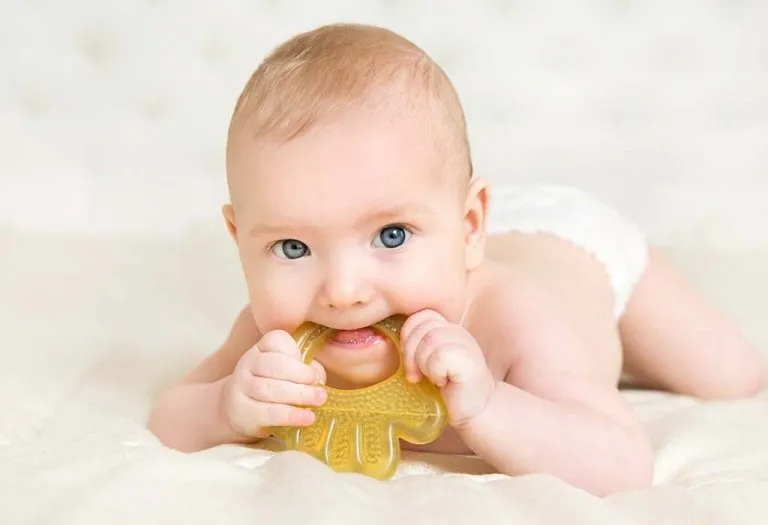
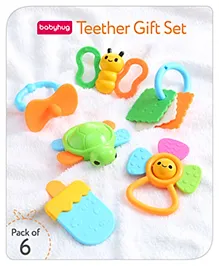
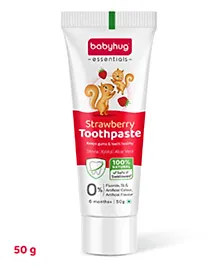
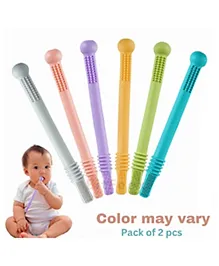

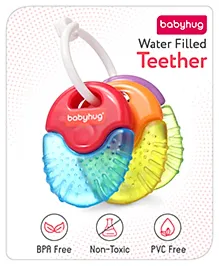



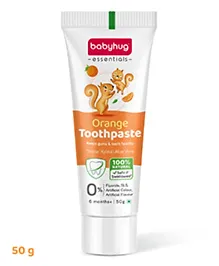

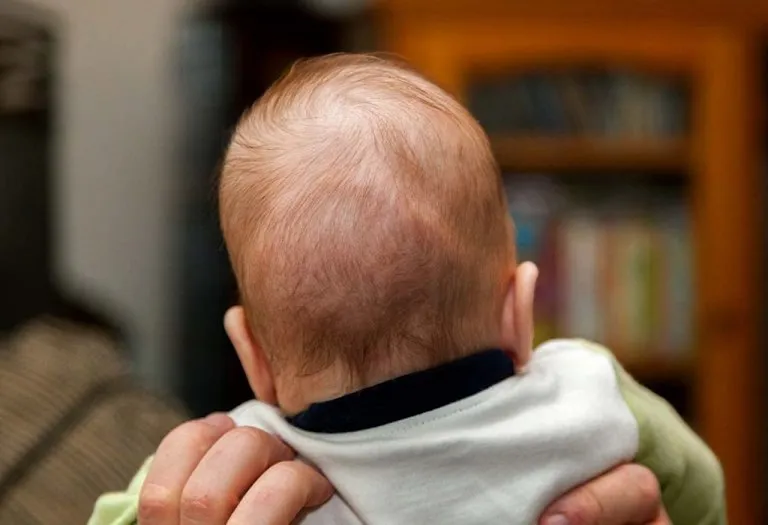


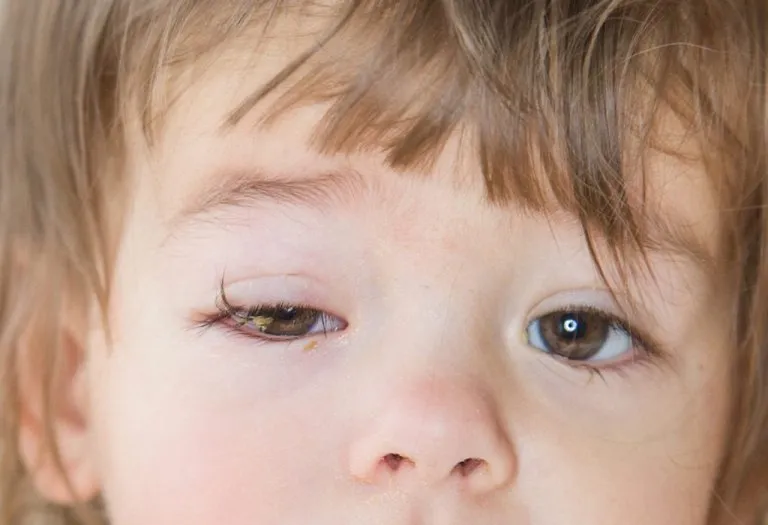
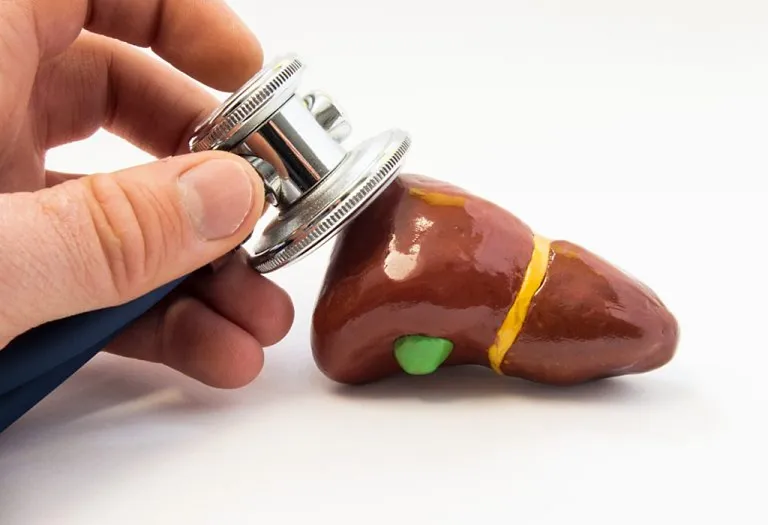


.svg)


















